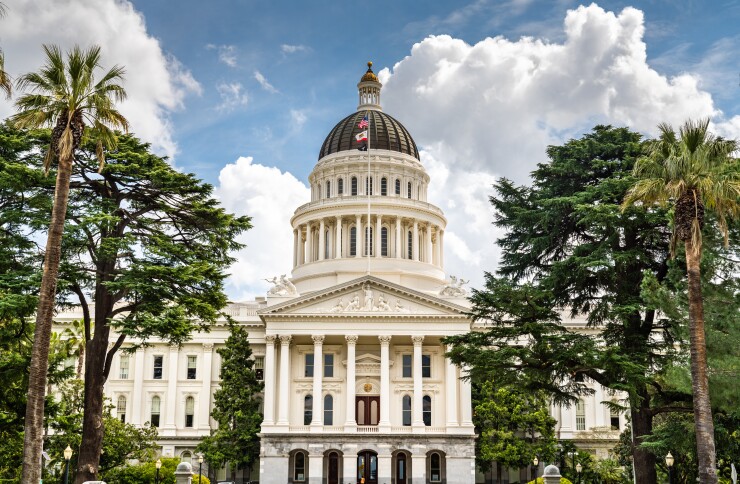California voters rejected a measure that would have made the most significant change to the state’s signature tax-limitation law, a setback to proponents hoping to raise more money for local governments and schools.
Proposition 15 was failing 52 percent to 48 percent, according to the Associated Press with 90 percent of the precincts reporting. It would have allowed property taxes on most commercial buildings worth more than $3 million to increase by pegging the levy to market value, rather than its purchase price. It could have generated as much as $11.5 billion annually for local governments, schools and community colleges, according to the nonpartisan Legislative Analyst’s Office.
Currently, under the state’s Proposition 13, property taxes on both homes and businesses are limited to 1 percent of the purchase price and annual assessed taxable valuation increases are capped at 2 percent. Proposition 13 has long been popular with homeowners and changing it has been considered a third rail in California politics. It not only capped property taxes but made it more difficult to raise other levies too. Its passage in 1978 set off a national wave of other tax limitation measures.
Backers of this year’s measure said Proposition 13 has shortchanged schools and created an unequal system benefiting large corporations such as Walt Disney Co., which pays taxes on Disneyland based on the 1970s but charges customers 2020 fees.
Even though they lost, supporters pledged to build on their efforts.
“It provides a framework and base of power for future work and reform to truly take on the biggest challenges of our times on behalf of all Californians,” said Alex Stack, a spokesperson for the Prop 15 campaign.
Opponents said it would increase the cost of living for everyone as businesses would likely pass along the higher levies. They also argue that changing the commercial portion of Proposition 13 is a stepping stone to easing its limits on residential property tax increases.

"Today’s victory should send a clear message to the proponents and warn all politicians that voters will continue to reject attempts to dismantle Prop 13," said Rob Lapsley, president of the California Business Roundtable.
The measure would have boosted school districts, which have already seen state funding reduced and are poised to suffer more cuts under a protracted pandemic and economic hit, said Howard Cure, head of municipal research at Evercore Wealth Management.
“These cuts won’t have an immediate impact on school operations, as I assume the districts will be able to borrow,” Cure said. “However, if there is not an effective vaccine for a while, school districts will suffer.”





